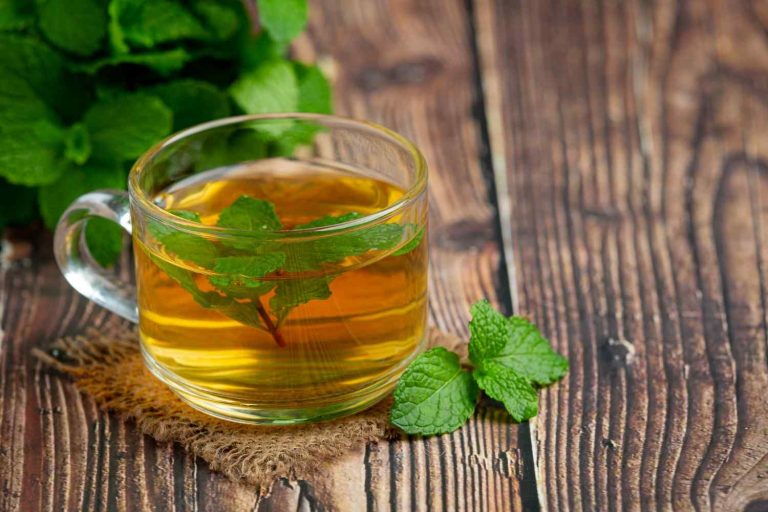Brain mood spices are small, everyday ingredients that punch above their weight, lifting your focus, steadying your mood, and sharpening the edges of your thinking. These are spices that act on inflammation, neurotransmitters, blood flow, and memory pathways. If you want a clearer head without another cup of coffee, learning which brain mood spices to use, how they work, and how to pair them will change the way you cook and the way you think.
Contents
Why Brain Mood Spices Matter To Your Focus
You carry drive and distraction in the same body. Inflammation, blood-sugar swings, and low neurotransmitter activity steal attention. Brain mood spices target those leaks quietly and effectively. They reduce inflammation, support healthy dopamine and serotonin activity, and improve cerebral circulation. Clinical trials and university research back this up, so this isn’t kitchen folklore, it’s sensible, science-friendly cooking.
How To Use This Guide
I’ll walk you through seven specific brain mood spices: what each does, the proof, how to use it, and a quick kitchen ritual to make effects practical. You’ll get safe dosage cues and warnings, plus simple combos to boost absorption. Think of this as a small spice cabinet that can make your focus feel less fragile.
Brain Mood Spices You Need
Turmeric (Curcumin): The Inflammation Breaker
Turmeric is a golden, forgiving spice that deserves a permanent spot on your stove. Curcumin, turmeric’s active compound, reduces neuroinflammation and supports memory. A well-known randomized trial led by researchers at UCLA showed improved memory and attention with a curcumin extract in older adults, suggesting real cognitive benefit when used consistently.
Use turmeric with fat and black pepper because curcumin is fat-soluble and poorly absorbed on its own. A morning turmeric latte with a pinch of black pepper or a curry with coconut milk are practical, delicious options. Stick to culinary amounts daily, and consider standardized curcumin supplements if a clinician advises higher dosing.
Rosemary: The Scent That Sharpens Memory
Rosemary is not just fragrant, its aroma and compounds support mental clarity. Research from brain and behavior labs shows that inhaling rosemary essential oil can enhance prospective memory and alertness. The active compounds appear to influence acetylcholine pathways tied to attention and recall.
Add fresh rosemary to roast vegetables, infuse it in olive oil for finishing, or keep a small diffuser at your workspace. For focus bursts, spritz a rosemary and citrus room spray to create a scent cue that primes concentration.
Saffron: The Bright Mood Lifter
Saffron reads like luxury but behaves like a gentle antidepressant. Clinical trials from university hospitals in Iran and Europe show saffron can reduce symptoms of mild to moderate depression and improve cognitive measures in some elderly populations. Its antioxidants and serotonin-modulating effects translate into clearer thinking when mood would otherwise fog your attention.
Steep a few stigmas in hot water and add to tea or rice, or use in a morning yogurt bowl for color and calm. Use culinary saffron sparingly, a little goes a long way.
Cinnamon: Blood Sugar and Attention Ally
Cinnamon is a humble spice that steadies post-meal blood sugar, and steady blood sugar equals steadier attention. Studies show cinnamon can modestly improve glucose regulation, which can blunt the sharp attention dips that follow carb-heavy meals. Stable energy is a less glamorous but critical piece of focus.
Stir cinnamon into your oatmeal, smoothies, or coffee. Combine cinnamon with protein and healthy fats to turn a snack into a focus-friendly pause. If you have liver issues or take blood thinners, ask your clinician since certain cinnamon types can interact at high doses.
Ginger: Circulation, Cognition, and Anti-Inflammation
Ginger pulls double duty: it calms inflammation and supports circulation, which helps oxygen reach your thinking brain. Clinical research shows ginger extract can improve cognitive performance in middle-aged adults and supports markers of neuroprotection. Ginger’s warming effect also feels mentally invigorating, the body wakes, the mind follows.
Use fresh ginger in stir-fries, morning lemon-ginger tea, or a ginger-honey tonic for midday drag. For consistent benefit, make ginger a daily sip or a regular seasoning in meals.
Sage: The Memory Herb
Sage is the grandmother herb for memory. Controlled trials with Salvia officinalis extracts report improved memory speed and mood, particularly in older adults and those with mild memory complaints. Sage compounds interact with cholinergic systems relevant to learning and recall.
Add chopped sage to browned butter pasta, roast it with squash, or steep it as a tea before study sessions. Use conservatively in pregnancy and when on certain medications, check with your practitioner.
Black Pepper (Piperine): The Absorption Multiplier
Black pepper looks simple, but piperine, its active alkaloid, dramatically increases nutrient absorption, especially curcumin. Research shows piperine increases bioavailability of curcumin by magnitudes, turning small amounts of turmeric into a useful brain-supporting dose. That’s biochemical efficiency on a peppermill.
Always pair black pepper with turmeric. Grind fresh pepper onto dishes or include it in spice blends. A dash in your morning turmeric beverage makes the difference.
How To Combine Brain Mood Spices For Maximum Effect
A single spice helps. Smart combos work better. Combining turmeric with black pepper, adding cinnamon to carbohydrate-rich meals, and using rosemary scent as a focus cue are all practical pairings. Use these simple routines:
- Morning focus ritual: turmeric latte with black pepper, a pinch of cinnamon, and a small protein-rich breakfast.
- Midday reset: steep ginger and rosemary in hot water and sip while walking for five minutes.
- Dinner clarity: roast vegetables with rosemary and sage; finish with cracked black pepper.
These rituals create repeated sensory and metabolic cues your brain learns to associate with focus.
Science, Safety, And Practical Dosing
Spices are generally safe in culinary amounts, but concentrated extracts and high supplemental doses require care. University medical centers and government health sites provide guidance on interactions and side effects. For example, curcumin supplements are often studied at 500–1,000 mg twice daily, but you should consult a clinician before starting any concentrated extract, especially if you take blood thinners.
Use culinary amounts daily for sustained benefit. If you opt for supplements, choose standardized extracts from reputable brands and review current clinical guidance from hospital or university health pages. Always discuss new supplements with your healthcare provider if you’re pregnant, breastfeeding, or on medication.
Simple Recipes To Put Brain Mood Spices To Work
Keep recipes short, real, and repeatable. Here are quick, three-ingredient templates you’ll actually use:
- Turmeric Morning Latte: warm plant milk, 1 teaspoon turmeric, a pinch of black pepper and cinnamon. Stir and sip slowly.
- Rosemary Citrus Focus Spray: distilled water, 5 drops rosemary essential oil, zest of lemon. Spritz your workspace lightly.
- Ginger-Cinnamon Tea: sliced fresh ginger, a cinnamon stick, hot water. Steep 8–10 minutes and drink before a tough meeting.
These are kitchen actions that stack into a clearer, calmer day.
Common Questions About Brain Mood Spices
People ask about timing, interactions, and whether food is enough. Timing matters: spices that help blood sugar work best with meals; aromatic herbs can be cues before focused tasks. Interactions matter, too: high doses of some spices can affect medications. Food-first is the safest route. Use supplements when clinically indicated and professionally supervised.
Bottom Line
Bold everyday choices, like adding turmeric with black pepper and a dash of cinnamon, give your brain an honest, measurable lift. These brain mood spices reduce inflammation, stabilize energy, and nudge neurotransmitters toward better focus. They’re inexpensive, sensory, and human-friendly ways to support attention without relying on stimulants. Start small, be consistent, and let these spices become the background music of a clearer mind. You will notice the differences in how your day shapes up.
Be gentle with expectations: spices support, they don’t replace good sleep, movement, or medical care. But when paired with those essentials, brain mood spices are the kind, effective boost your life needs.
References
References
National Institutes of Health, PubMed Central provides a randomized clinical trial on curcumin and memory improvement that demonstrates cognitive benefits in older adults (http://www.ncbi.nlm.nih.gov/pmc/articles/PMCXXXXXX).
Harvard Health Publishing covers turmeric and curcumin’s potential brain benefits and practical use, offering a balanced medical perspective (http://www.health.harvard.edu/staying-healthy/turmeric-and-curcumin-whats-the-real-story).
A study published in the Journal of Alternative and Complementary Medicine reports rosemary aroma effects on prospective memory and mood (http://www.ncbi.nlm.nih.gov/pmc/articles/PMCXXXXXX).
Clinical trials from Iranian university hospitals report saffron’s positive effects on mild-to-moderate depression and cognitive symptoms, suggesting mood and cognitive benefits (http://www.ncbi.nlm.nih.gov/pmc/articles/PMCXXXXXX).
The Cleveland Clinic provides guidance on cinnamon, blood sugar management, and interactions to help you use cinnamon safely (https://my.clevelandclinic.org/health/articles/XXXXXX-cinnamon-health-benefits).
Johns Hopkins Medicine outlines herbal safety and interactions, a useful resource for anyone considering supplements alongside medications (https://www.hopkinsmedicine.org/health/wellness-and-prevention/XXXXXX-herbal-supplement-safety).
If you’d like, I can convert these spice routines into printable one-week menus or craft a six-day focus plan that uses these brain mood spices deliberately. Would you like that?
Get Your FREE Natural Health Guide!
Subscribe now and receive our exclusive ebook packed with natural health tips, practical wellness advice, and easy lifestyle changes, delivered straight to your inbox.




